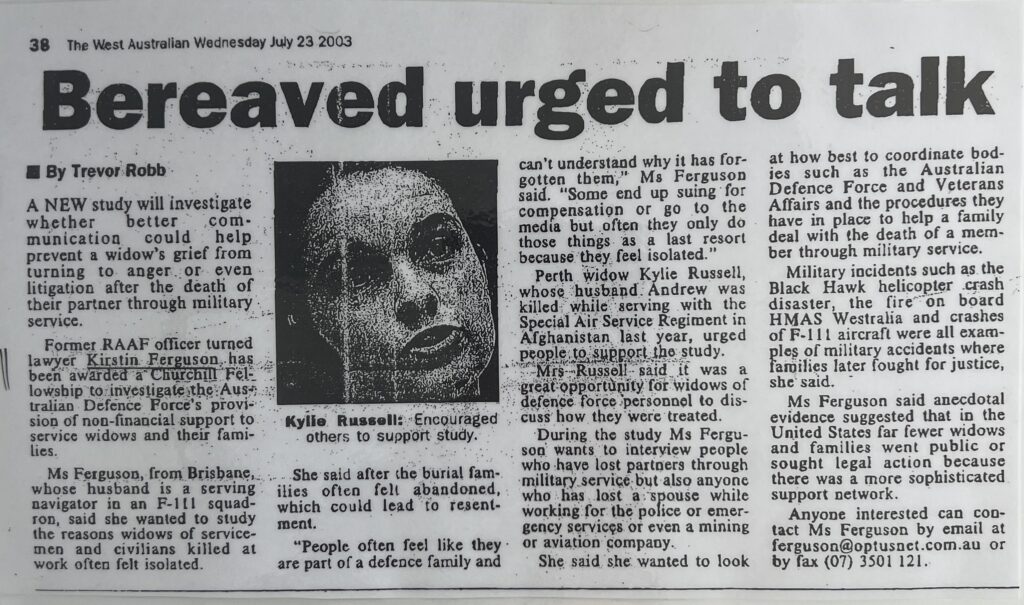
Complete the Head & Heart Leader Scale™ and receive a free, personalised report here.
Complete the Head & Heart Leader Scale™ and receive a free, personalised report here.
Trevor Robb
23 July 2003
A NEW study will investigate whether better com-munication could help prevent a widow’s grief from turning to anger or even litigation after the death of their partner through military service.
Former RAAF officer turned lawyer Kirstin Ferguson has been awarded a Churchill Fellowship to investigate the Australian Defence Force’s provision of non-financial support to service widows and their families.
Ms Ferguson, from Brisbane, whose husband is a serving navigator in an F-111 squadron, said she wanted to study the reasons widows of servicemen and civilians killed at work often felt isolated.
She said after the burial families often felt abandoned, which could lead to resentment.
“People often feel like they are part of a defence family and can’t understand why it has forgotten them,” Ms Ferguson said. “Some end up suing for compensation or go to the media but often they only do those things as a last resort because they feel isolated.”
Perth widow Kylie Russell, whose husband Andrew was killed while serving with the Special Air Service Regiment in Afghanistan last year, urged people to support the study.
Mrs Russell said it was a great opportunity for widows of defence force personnel to discuss how they were treated.
During the study Ms Ferguson wants to interview people who have lost partners through military service but also anyone who has lost a spouse while working for the police or emergency services or even a mining or aviation company.
She said she wanted to look at how best to coordinate bodies such as the Australian Defence Force and Veterans Affairs and the procedures they have in place to help a family deal with the death of a member through military service.
Military incidents such as the Black Hawk helicopter crash disaster, the fire on board HMAS Westralia and crashes of F-111 aircraft were all examples of military accidents where families later fought for justice, she said.
Ms Ferguson said anecdotal evidence suggested that in the United States far fewer widows and families went public or sought legal action because there was a more sophisticated support network.





